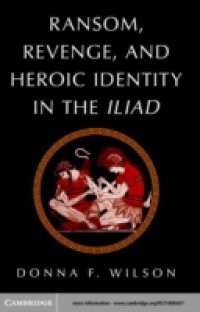From beginning to end of the Iliad, Agamemnon and Achilleus are locked in a high-stakes struggle for dominance based on their efforts to impose competing definitions of loss incurred and the nature of compensation thereby owed. This typology of scenes involving apoina, or 'ransom' and poine, or 'revenge' is the basis of Donna Wilson's detailed anthropology of compensation in Homer, which she locates in the wider context of agonistic exchange. Wilson argues that a struggle over definitions is a central feature of elite competition for status in the zero-sum and fluid ranking system characteristic of Homeric society. This system can be used to explain why Achilleus refuses Agamemnon's 'compensation' in Book 9, as well as why and how the embassy tries to mask it. Ransom, Revenge, and Heroic Identity in the Iliad thus examines the traditional semantic, cultural and poetic matrix of which compensation is an integral part.

